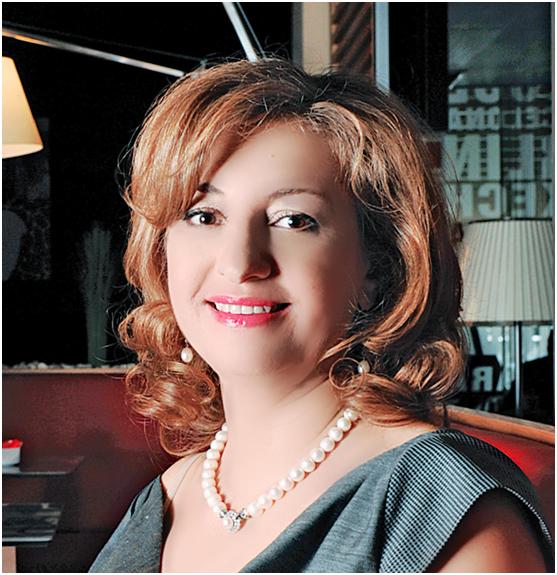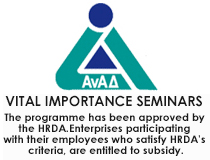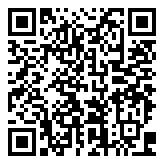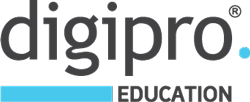Developing Innovative, EdTech-Enriched Learning Spaces to Challenge the “Alpha Gen” Students

Instructor
-
 Chryso ChristodoulouCEO - Founder
Chryso ChristodoulouCEO - FounderMrs. Chryso Christodoulou is the founder of FUNecole® Research Institute and the co-founder of Digipro Education Limited. Her academic background is in Computer Science and Education. She is the designer and author of the FUNecole® for Cambridge ICT Starters Initial Steps endorsed by University of Cambridge International Examinations and recognized best practice educational approach by the European Commission. Mrs. Christodoulou is an external educational expert for the Institute of Prospective Technological Studies (IPTS) on various educational research projects. She is a program committee member for the Institute of Electrical and Electronics Engineers’ (IEEE) Computer society. Mrs. Christodoulou participates as keynote speaker and panelist at numerous conferences, seminars and workshops around the world. Mrs. Christodoulou´s work has been published in scholarly and policy publications, such as IEEE Xplore and the European Parliament Magazine. She is a recognized as an entrepreneurship expert by OECD and is one of 350 European Ambassadors of Entrepreneurship.

Recent Participants

Date
- Jul 06 - 12 2025
Time
- 1:00 am - 8:30 am
Outline:
- In today’s world, technology is a vital part of students’ lives, providing tools and resources for communication, research, creativity, and collaborative problem-solving.
It’s essential for schools to ensure that both students and teachers have the skills to effectively use these new generation tools and resources.
- • Middle and High School Principals/Managers: Individuals responsible for leadership and management within middle and high school settings.
- • Educational Curriculum Consultants: Professionals involved in advising on and developing educational curricula.
- – Equip with Essential Skills: Learn how to effectively use new generation tools and resources in education.
- – Embrace Technology: Understand the importance of integrating different technologies (Android, Windows, iOS) in teaching.
- – Innovate Learning Spaces: Develop and implement innovative, technology-rich learning environments.
- – Engage Alpha Gen Students: Create dynamic and engaging educational experiences tailored to today’s tech-savvy students.
- – Lead with Vision: Enable educators to design and lead a forward-thinking, tech-enhanced curriculum.
The workshop methodology aims to support participants in how to expand their own personal skills and knowledge. This aim will be accomplished by providing robust and well-designed case studies, integrating sample educational demos, presenting and discussing real-life scenarios, performing group assignments and demonstrating web-enabled tools and recourses. There will be also presentations using PowerPoint slides, videos and various other multimedia tools.
Participants will be guided in a very concise way, both on the strategic side and on the practical classroom management side. Participants will be asked to bring their own materials into the seminar and will be encouraged to interact with the lecturers and other participants. This workshop will follow a very pragmatic approach that will enable the active participant interaction.
The seminar notes are going to be available to participants in hard copies as well as in electronic form via a dedicated online class blog.
Participants are strongly encouraged to bring their own laptops
Prior to the course, participants will answer a questionnaire. All answers will be posted on a special class blog. These will include the following:
- Basic information on the social context of their school.
- Description of the prevailing culture regarding innovation and creativity.
- The ethos of the school regarding 21st century practices and on line tools.
- The expected impact for school, students, and teachers.
DAY 1 – SUNDAY
16:30 – 18:30
The Future of Learning & Thinking
The Global Educational Framework Needs the Development of:
Expert thinkers who are intuitive, strategic, and flexible problem solvers.
Robust innovative pedagogies with digital accessibility.
Enhanced student knowledge, abilities, and habits of mind.
Learning experiences that promote the 4Cs in education (Critical Thinking, Creativity, Communication, Collaboration).
Case Study: Presentations & Hands-on School-Related Case Studies
21st Century Advanced Technologies and their role in learning.
Innovative learning content that supports academic excellence.
Blending multiple technologies (Android, Windows, iOS) for problem-solving and project development.
Redesigning learning by fostering expert thinkers.
DAY 2 – MONDAY
09:00 – 16:30
Transforming Learning Through Technology
It’s All About Learning!
How technology enhances teaching and learning beyond mere tools.
Involving teachers to improve student hands-on experiences.
Achieving relevance and improving student outcomes.
Formative vs. Summative Assessments.
Developing Autonomous & Collaborative Learning Environments
Common issues in EdTech investments by schools.
Avoiding wasted resources: Effective use of technology in education.
Empowering teachers to integrate technology with confidence.
Choosing the Appropriate Technology
Selecting the right tech for each lesson.
Managing failures in technology use.
Encouraging students to experiment and learn through mistakes.
Class Project
Participants create eLearning presentations on the subject using authoring tools.
Projects will be posted on the seminar’s dedicated blog.
The Program for International Student Assessment (PISA)
PISA assessment framework and cognitive abilities.
Developing higher-order thinking skills through reasoning and problem-solving.
Group Presentations
Present projects focusing on real-world applications of technology-enhanced learning.
DAY 3 – TUESDAY
09:00 – 16:30
Innovative Pedagogies for Future-Ready Education
The Evolution of Pedagogy in the Digital Age
Understanding the transformation of teaching methodologies.
The role of digital tools in student engagement.
Best Practices in Technology-Integrated Learning
Adapting global education models for local implementation.
Exploring innovative learning strategies like project-based and inquiry-based learning.
Case Study: Real-World Applications of AI & EdTech
Successful implementations of technology-driven learning.
Bridging the gap between research and classroom practice.
Project-Based Learning: Designing the Future Classroom
Participants collaborate to design interdisciplinary tech-integrated lesson plans.
DAY 4 – WEDNESDAY
09:00 – 16:30
Critical Thinking & Problem-Solving in Digital Learning
AI, Big Data, and the Role of Technology in Education
The impact of AI in personalized learning.
Data-driven insights for student progress tracking.
Designing Learning Environments for Critical Thinking
Encouraging students to question, analyze, and synthesize information.
Case studies on schools fostering problem-solving skills.
Ethics & Responsibility in EdTech
Addressing concerns over student data privacy and bias in AI.
Group Project: Ethical Dilemmas in AI & Education
Groups present scenarios and strategies to address ethical concerns in education technology.
DAY 5 – THURSDAY
09:00 – 16:30
Creativity & Collaboration in Education
The Role of Creativity in Education
How AI and technology can foster creative problem-solving.
Developing 21st Century Collaborative Classrooms
Case studies of innovative schools emphasizing collaboration.
Designing student-centered, interactive learning experiences.
AI-Powered Creativity in STEM & Humanities
Case study: Using AI for creative expression across disciplines.
Group Presentations
Teams present projects showcasing technology-driven collaboration.
DAY 6 – FRIDAY
09:00 – 16:30
Preparing for a Digital Future
The Future of Work & Education
How emerging technologies are shaping career pathways.
Preparing students for adaptability in a tech-driven world.
The Role of PISA in Global Education
Understanding global benchmarks in education.
Building a Sustainable Digital Education Model
Case studies on long-term integration of technology in schools.
Group Project: Designing a Sustainable Learning Model
Groups propose strategies for integrating AI and EdTech sustainably.
DAY 7 – SATURDAY
Reflection, Assessment & Closing
Panel Discussions & Reflections
Key takeaways from the seminar.
Future challenges and opportunities in educational technology.
Final Group Presentations & Certification
Participants present their final projects.
Closing remarks and distribution of certificates.

SUBSIDY, ATTENDANCE, AND CANCELLATION POLICY
HRDA Subsidy and Seminar Attendance
- A company’s participant is eligible for a subsidy when their Social Insurance and Industrial Training contributions have been settled in full by the time of registration/seminar. In case of ineligibility/disqualification, the company will be invoiced the full amount per participant.
- A company’s participant is eligible for a subsidy if he/she completes an obligatory attendance of 75% or more (both during seminar and company visit). In case of failure to complete the attendance, the company will be invoiced the full amount, per participant.
Cancellation and Substitution Policy
- Cancellations can be accepted up to 5 working days prior to the seminar without penalties. For any cancellations received after the deadline (or no-shows), the company will be invoiced the full amount per participant.
- Substitutions can be accepted any time prior to the seminar without penalties.
- Τhroughout the seminar participants must have their camera and microphone open, for better communication and as defined by the specifications of HRDA otherwise participants will not be approved by HRDA.

